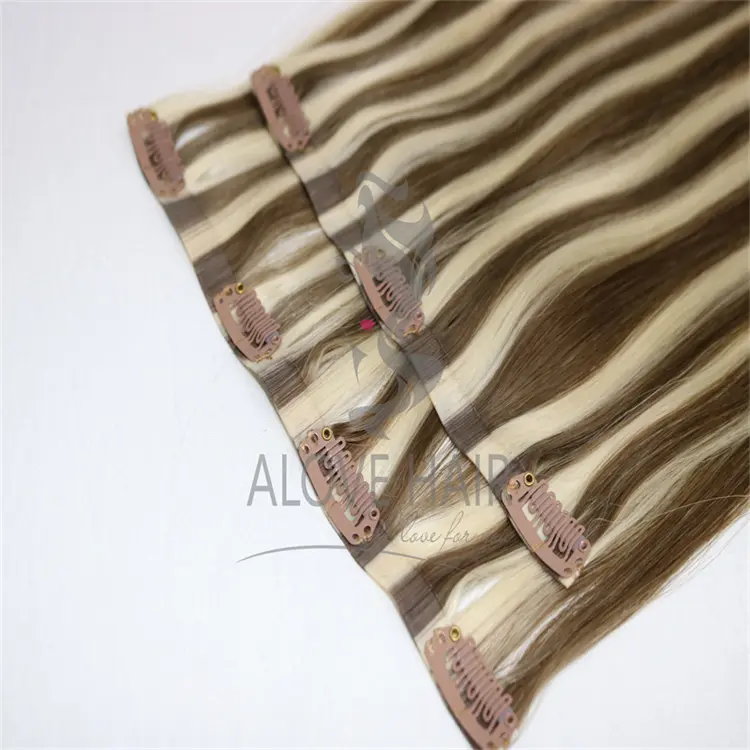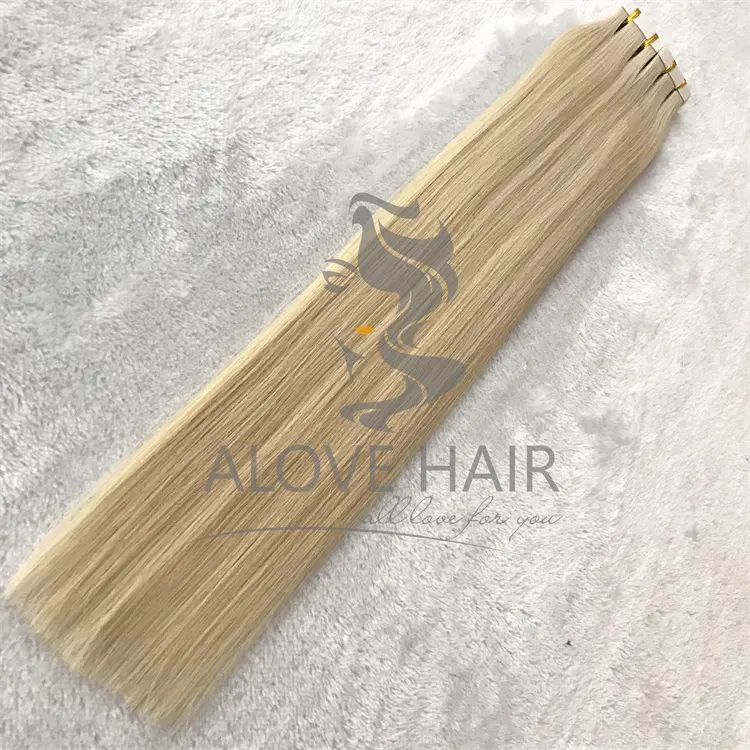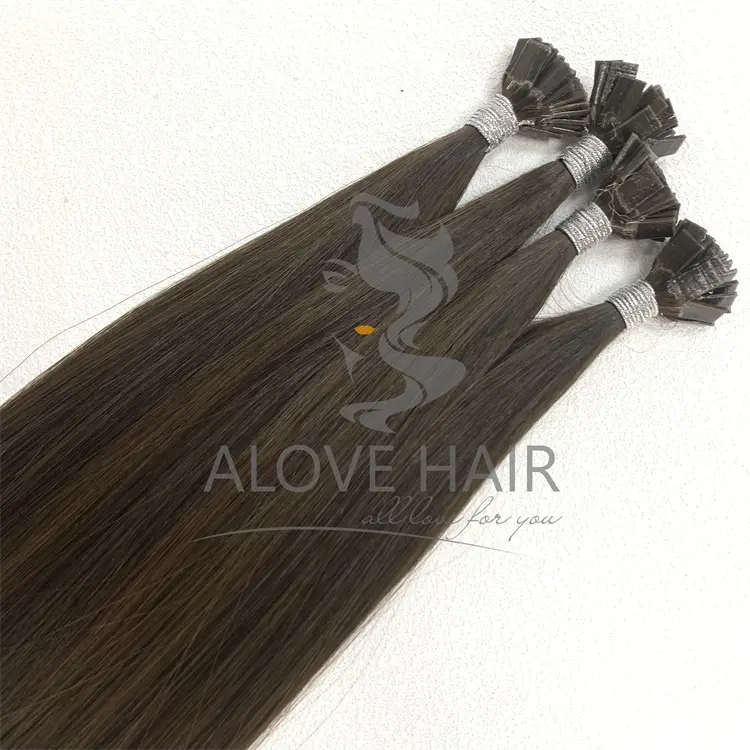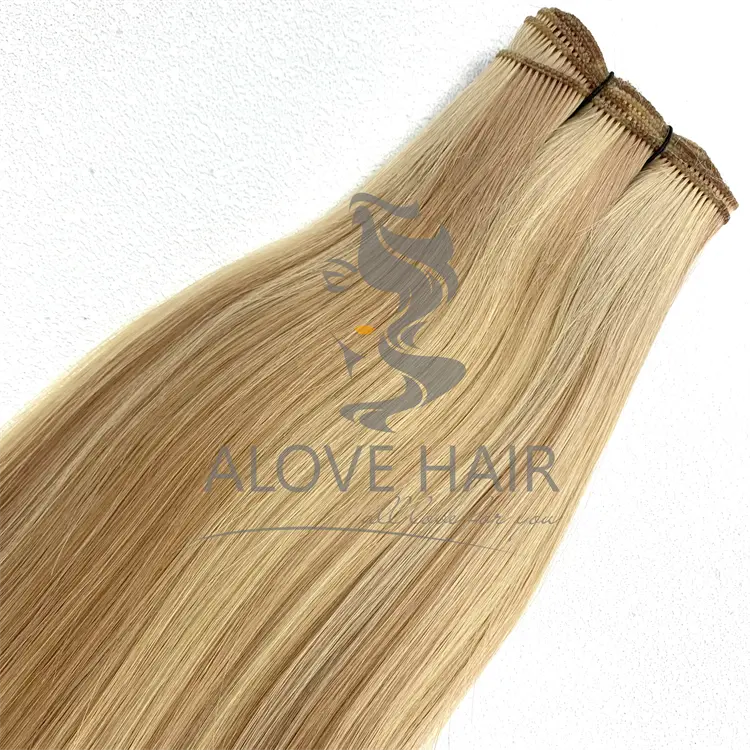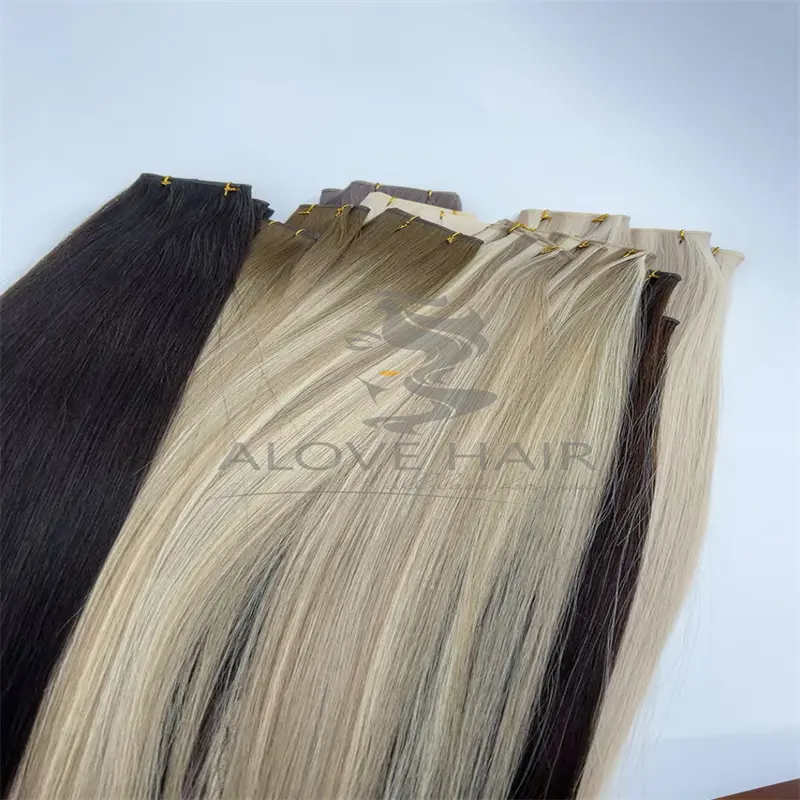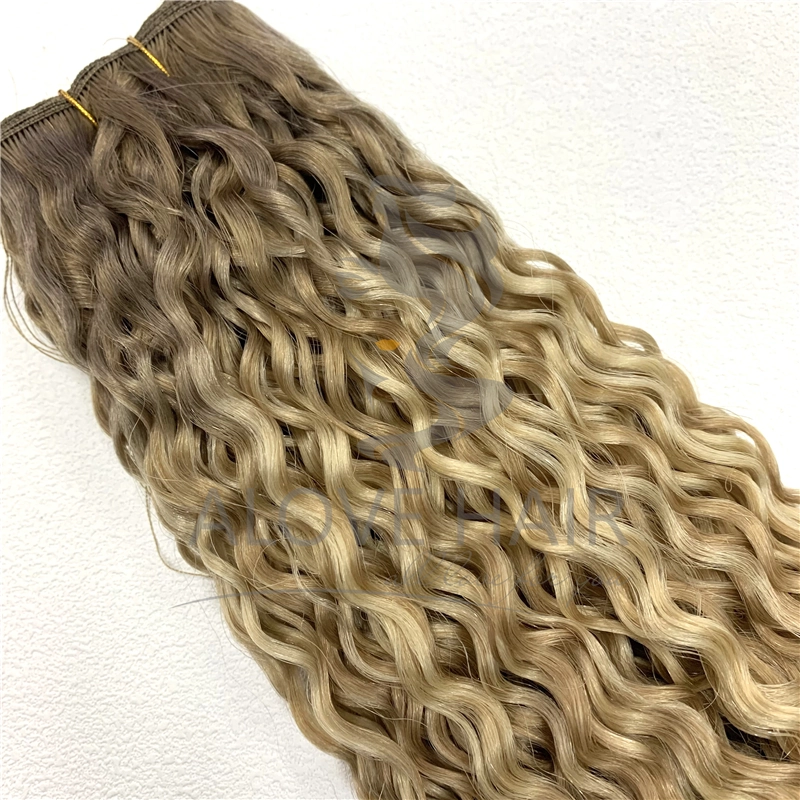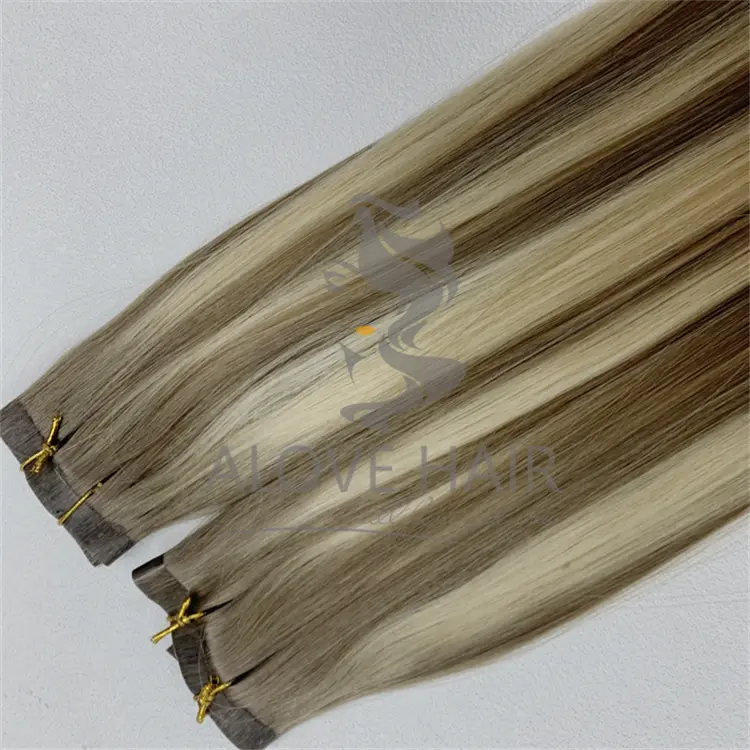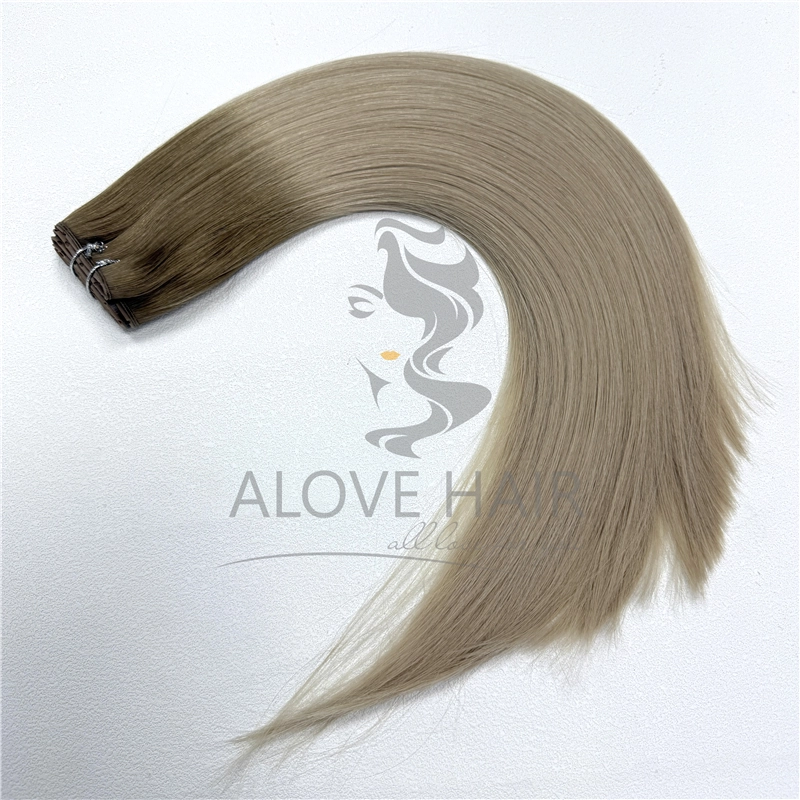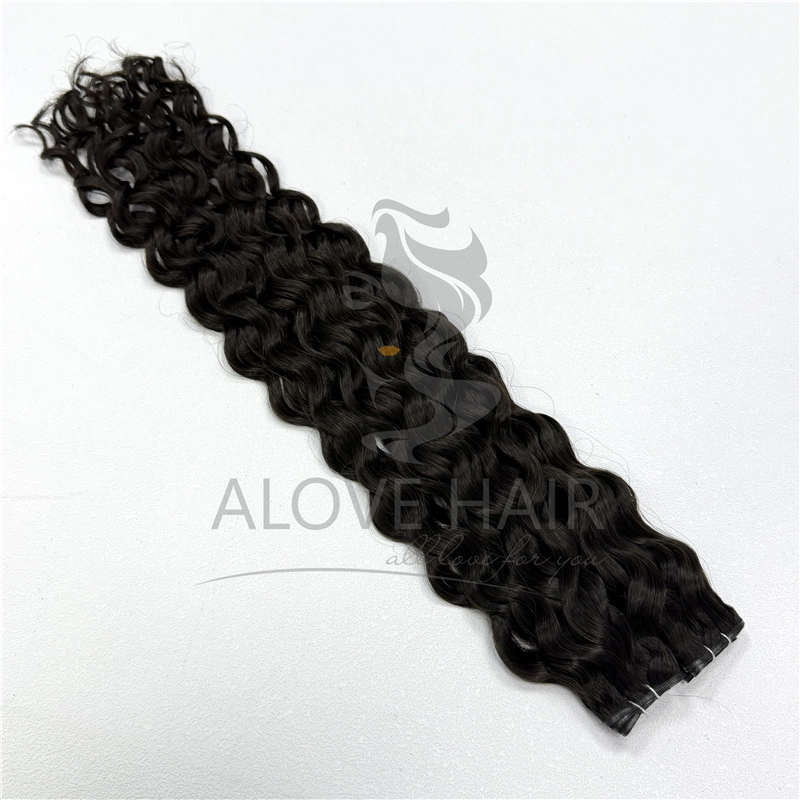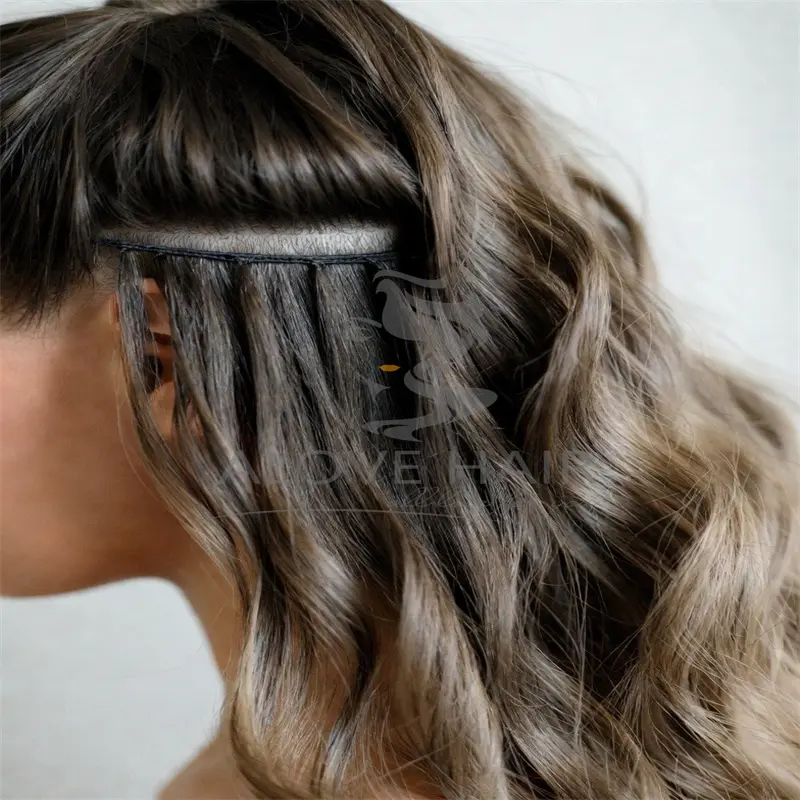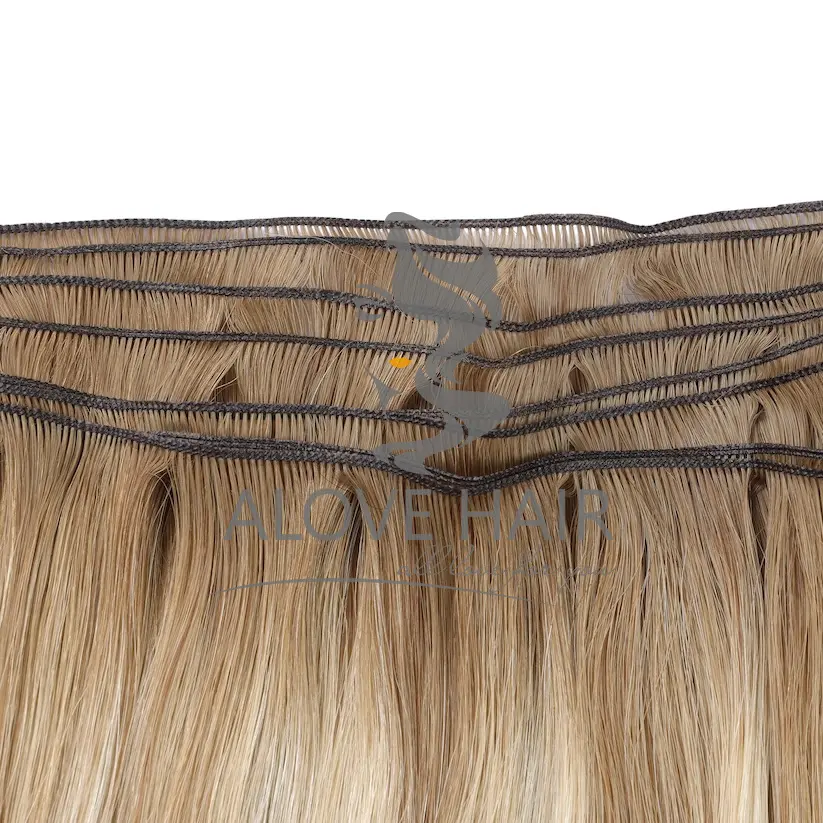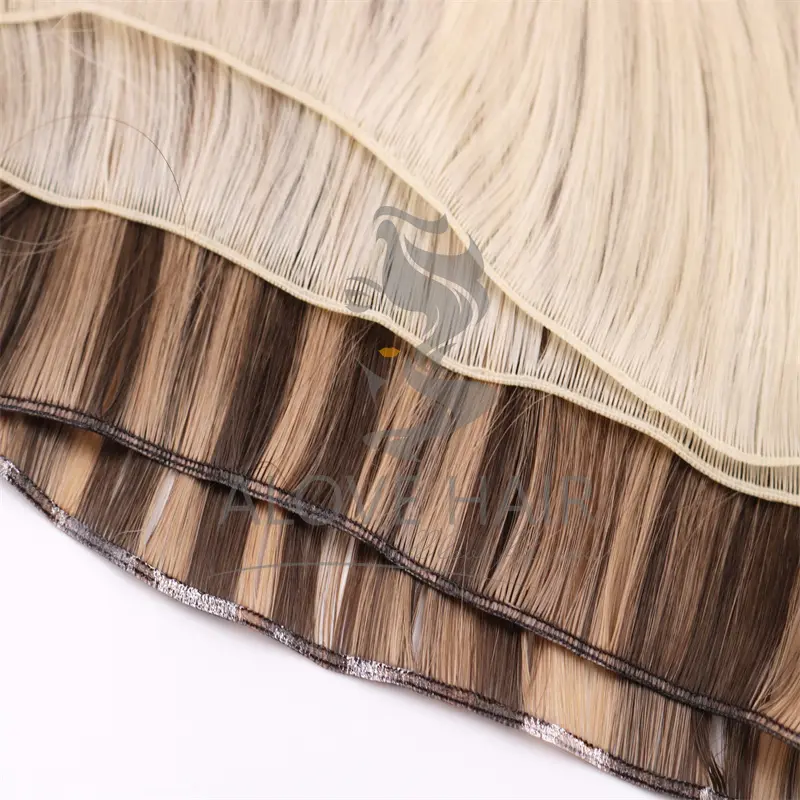Introduction
In recent years, clip-in hair extensions have emerged as one of the most popular options for individuals seeking instant length, volume, or a temporary hair transformation. According to a Statista report, the global hair extension market surpassed USD 7.2 billion, with clip-in extensions accounting for approximately 31% of total sales due to their convenience and reusability.
Whether you’re a stylist, salon owner, or beauty enthusiast, understanding the pros and cons of clip-in hair extensions is essential before investing. This article combines real-world research, expert insights, and professional manufacturing knowledge from Qingdao ALOVE HAIR PRODUCTS Co., Ltd., a trusted supplier of luxury human hair extensions since the 1980s.
What Are Clip-In Hair Extensions?
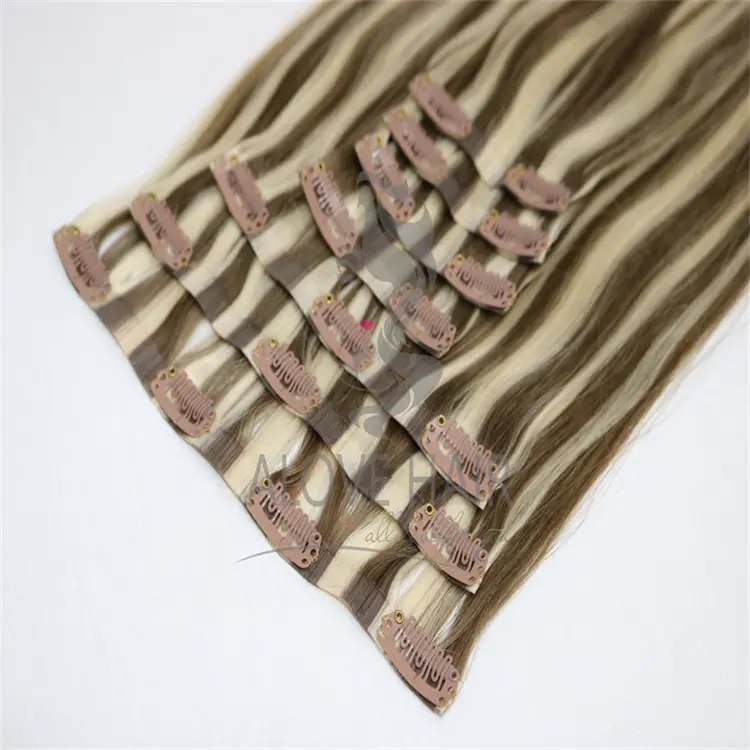
Clip-in hair extensions are wefts of human or synthetic hair attached with small pressure-sensitive clips. They can be applied and removed within minutes, making them ideal for temporary styling. Unlike tape-ins or sew-ins, clip-ins don’t require adhesive or heat, which makes them one of the most beginner-friendly extension types.
| Type | Installation Method | Longevity | Best For |
|---|---|---|---|
| Clip-In | Snap-on clips | 6–12 months (with care) | Temporary styling, events |
| Tape-In | Adhesive tape | 6–8 weeks | Medium-term wear |
| Sew-In | Braided weave | 6–10 weeks | Long-term volume |
| I-Tip | Microbeads | 2–4 months | Semi-permanent styles |
Table 1: Comparison of Popular Hair Extension Types
Advantages of Clip-In Hair Extensions
Clip-in extensions have grown in popularity because they combine versatility, affordability, and protection for natural hair. Below are the primary advantages supported by consumer and stylist research.
1. Easy and Quick Application
One of the most significant benefits is how easily clip-ins can be installed. On average, it takes only 5–10 minutes to clip them into place without any professional assistance.
A salon survey conducted by Hair Professionals Network revealed that 72% of users preferred clip-ins for their DIY-friendly application.
| Application Time Comparison | Average Installation Time |
|---|---|
| Clip-In | 5–10 minutes |
| Tape-In | 60–90 minutes |
| Sew-In | 120–180 minutes |
| I-Tip | 90–150 minutes |
Table 2: Installation Time Comparison Among Extension Types
This ease of use makes clip-in hair extensions perfect for users who love to switch between hairstyles regularly or only wear extensions for special occasions.
2. Non-Damaging to Natural Hair
Because clip-ins require no glue, heat, or braiding, they are the least damaging type of hair extension when used properly. According to a study by the International Trichology Journal, over 80% of users reported no hair breakage or scalp irritation from clip-ins compared to adhesive-based methods like tape-ins or keratin bonds.
The pressure clips distribute weight evenly across the scalp, reducing stress on natural strands — especially when the extensions are made with lightweight, cuticle-intact human hair like those offered by Qingdao ALOVE HAIR PRODUCTS Co., Ltd.
3. Long Lifespan with Proper Care
High-quality human hair clip-in extensions can last from 6 to 12 months, depending on usage frequency and maintenance. Synthetic versions, by contrast, last only about 2–3 months before tangling or losing shine.
To learn more about the differences between synthetic and human hair clip-in extensions, please see: Synthetic Clip In Hair Extensions vs Human Hair Clip In Extensions
| Hair Type | Average Lifespan | Maintenance Difficulty | Heat Styling |
|---|---|---|---|
| Human Hair (Cuticle-Intact) | 6–12 months | Medium | Yes |
| Synthetic Hair | 2–3 months | Low | No |
| Mixed Fiber | 4–6 months | Medium | Limited |
Table 3: Lifespan and Maintenance Comparison by Hair Type
ALOVE Hair’s 100% cuticle-intact clip-ins are double drawn and hand-processed to maintain natural alignment, ensuring smoothness and durability through repeated wear and washing.
4. Versatile Styling Options
Clip-ins allow the freedom to experiment with color, texture, and volume — without chemically processing your natural hair. They can be straightened, curled, or dyed (if made from real human hair). This makes them ideal for both everyday wear and special occasions.
How to create your clip-ins style? Please see: Step-by-Step Guide: How to Style and Care for Your Remy Clip-In Hair Extensions
In a poll by Beauty Insights Global, 65% of women reported using clip-ins specifically to try new hairstyles or colors before committing to permanent changes.
With brands like ALOVE Hair, users can select from an extensive palette of natural and vibrant colors, including blonde balayage, ombré tones, and fantasy hues — all while keeping their own hair safe.
5. Cost-Effective and Reusable
Compared to salon-applied extensions, clip-ins offer excellent value. While the initial purchase cost may range between $80–$400, they can be reused hundreds of times with proper care, unlike tape-ins that require regular reinstallation fees.
| Extension Type | Initial Cost | Reinstallation Cost | Annual Maintenance Cost (Avg.) |
|---|---|---|---|
| Clip-In | $80–$400 | None | $0–$50 |
| Tape-In | $150–$500 | $150–$300 every 6–8 weeks | $600–$1,200 |
| Sew-In | $200–$600 | $100–$200 every 2 months | $800–$1,000 |
Table 4: Annual Cost Comparison
Over time, the return on investment of quality clip-ins far exceeds that of semi-permanent options.
Regularly check out high-quality clip-in wig products:
Best quality remy clip in hair extensions
Wholesale high quality cuticle intact remy clip in hair extensions
Disadvantages of Clip-In Hair Extensions
While clip-ins are highly practical, they aren’t perfect. Here are the most common drawbacks based on professional stylist feedback and consumer studies.
1. Not Suitable for Continuous Wear
Clip-ins are designed for temporary use, not 24-hour wear. Sleeping or showering with them attached can cause tangling, clip slippage, and strain on your natural roots.
In a 2023 Hair Health Study of 800 users:
78% of participants who slept with clip-ins reported increased tangling.
42% noticed mild traction discomfort after prolonged use.
Thus, proper removal before bed is essential for maintaining both scalp comfort and hair health.
2. Visible Clips in Thin or Fine Hair
If your natural hair is very fine, the metal clips may become visible, especially under bright light. To combat this, many users choose smaller clip wefts or custom sets that match their natural density and color — a customization service provided by Qingdao ALOVE HAIR PRODUCTS Co., Ltd.
ALOVE offers hand-tied clip-in wefts that lie flatter against the scalp, creating a seamless and natural blend even for clients with thin or short hair.
3. Requires Regular Maintenance and Cleaning
Although low-maintenance compared to permanent extensions, clip-ins still need washing every 15–20 wears and detangling after each use. Poor care can lead to shedding or frizz, particularly with lower-quality hair.
Professional-grade extensions, such as ALOVE Hair’s double-drawn Remy sets, are treated with cuticle-preserving techniques, reducing tangling by up to 60% compared to non-Remy products.
4. Limited Security During Intense Activity
Because clip-ins rely solely on pressure clips, they may shift during vigorous physical activities or high-humidity conditions. For athletes or dancers, semi-permanent options (like tape-ins or sew-ins) may provide better hold.
However, ALOVE’s upgraded anti-slip silicone clips improve grip stability by 40%, making them one of the most secure clip-in options on the market for light to moderate activity.
5. May Feel Heavy with Too Many Wefts
Wearing more than 200 grams of clip-ins can cause scalp tension or headaches for some users. Therefore, stylists recommend applying lighter sets (100–150 grams) or distributing wefts evenly across the head.
For fine hair, try ALOVE’s flat clip-in extensions — they use thinner bases that maintain volume without extra weight.
Research Insight: Clip-In Hair Extension Market Trends
Recent data shows the growing preference for human hair clip-ins over synthetic options due to their realism and sustainability. A Grand View Research report found that:
Human hair extensions accounted for 66% of total market revenue.
The clip-in category grew at an annual rate of 8.3%, faster than any other method.
Sustainable and ethically sourced hair became a top purchase driver for 54% of buyers.
| Segment | Market Share | Growth Rate (CAGR) |
|---|---|---|
| Clip-In Extensions | 31% | 8.3% |
| Tape-In Extensions | 27% | 6.5% |
| Sew-In Extensions | 22% | 5.8% |
| I-Tip Extensions | 12% | 4.9% |
| Others | 8% | 3.1% |
Table 5: Global Hair Extension Market Segmentation
If your shop or salon needs to purchase wigs and hair extensions products, please feel free to contact ALOVE. We offer a variety of high-quality wigs and hair extensions products, including clip-on extensions and high-end products such as Genius Weft.
Sustainability and Ethical Sourcing: The ALOVE Approach
Modern consumers demand more than beauty — they seek transparency and sustainability. Qingdao ALOVE HAIR PRODUCTS Co., Ltd. stands out for its responsible sourcing and eco-conscious processing.
ALOVE Hair’s Ethical Advantages:
100% cuticle-intact human hair, collected through ethical, voluntary donation programs.
No acid or ash bath treatments, preserving natural texture and durability.
Environmentally friendly bleaching and coloring techniques, minimizing chemical runoff.
Custom recycling and reuse programs for salon partners.
This focus aligns with the global beauty industry’s shift toward sustainable production — projected to grow by 12% annually through 2028.
Choosing the Right Clip-In Hair Extensions
When selecting clip-ins, consider the following factors to ensure the best performance and comfort:
| Factor | Recommended Option | Why It Matters |
|---|---|---|
| Hair Material | 100% Cuticle-Intact Human Hair | Natural look and longevity |
| Weight | 100–150 grams | Comfortable for daily wear |
| Clip Type | Silicone-Coated | Prevents slipping |
| Weft Construction | Hand-Tied / Flat | Flatter, more natural finish |
| Brand | ALOVE Hair | Trusted since the 1980s with premium Remy hair |
Table 6: Key Factors in Choosing Quality Clip-In Extensions
Why Stylists and Salons Trust ALOVE Hair
Since its founding in the 1980s, Qingdao ALOVE HAIR PRODUCTS Co., Ltd. has earned a reputation as a global leader in premium hair manufacturing.
Here’s why professionals choose ALOVE:
Consistent Quality: 100% cuticle-aligned hair with a 90%+ customer retention rate.
Custom Solutions: Tailored clip-in sets, colors, and packaging for salons and stylists.
Comprehensive Support: From installation tools to expert after-sales guidance.
Worldwide Reach: Supplying professional-grade extensions to the USA, UK, Canada, Australia, and across Europe.
ALOVE’s mission is to help stylists and beauty brands deliver authentic, healthy, and sustainable hair transformations.
Conclusion
Clip-in hair extensions strike the perfect balance between beauty, flexibility, and affordability. They allow wearers to instantly change their look without damaging natural hair — making them a top choice for modern consumers. However, they do require proper care and are best suited for temporary wear rather than continuous use.
For salons and stylists seeking premium-quality clip-ins backed by decades of craftsmanship, Qingdao ALOVE HAIR PRODUCTS Co., Ltd. remains a trusted partner.
With ethically sourced, cuticle-intact human hair and advanced processing techniques, ALOVE ensures every client experiences confidence, comfort, and elegance with every clip.
